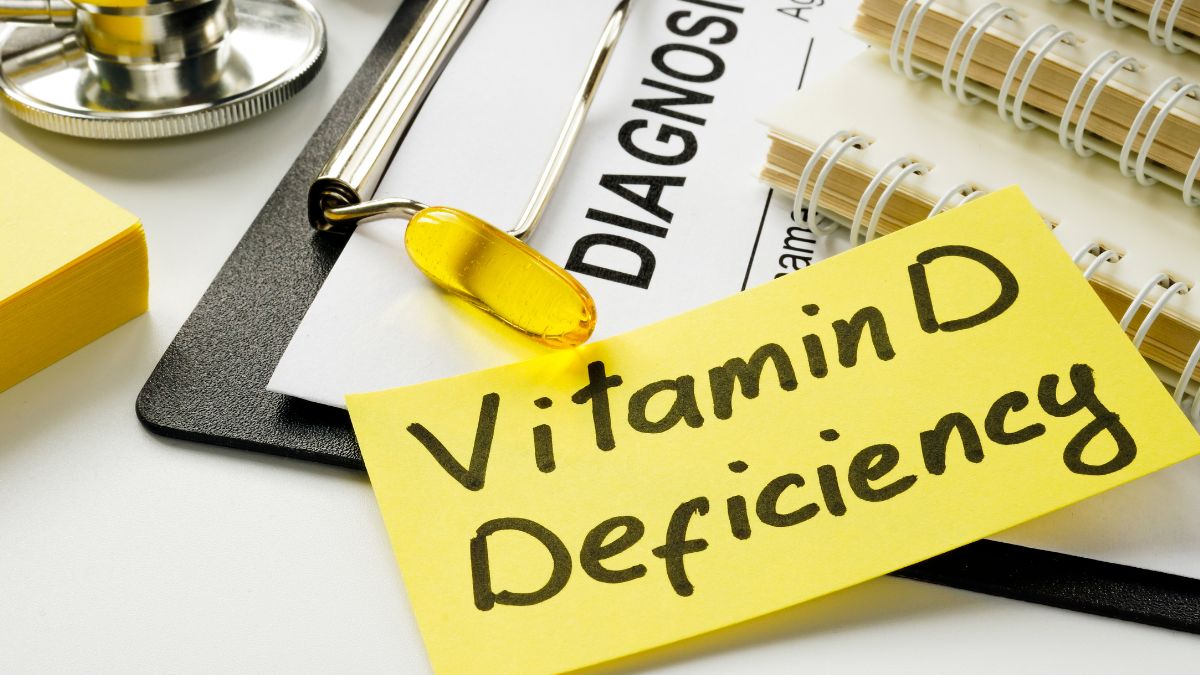- By Prerna Targhotra
- Mon, 23 Oct 2023 12:57 PM (IST)
- Source:JND
Vitamin D Deficiency: Vitamin D is one of the most important nutrients that our body requires to function effectively. It is an essential nutrient that we eat and a hormone in our body that produces and is needed for absorbing and retaining calcium and phosphorus, which are crucial for bone building.
While explaining vitamin deficiency, Dr Preeti Kabra, Chief of lab- Neuberg Diagnostics, Chennai said that lower vitamin D is the reason for stiffness and weakness in the muscle's health. When our vitamin D levels dip, our bones can become weak, leading to stiffness and discomfort. Dr. Preeti suggested some measures by which one can know the vitamin D levels in their body and increase the amount of this nutrient in the body.
Watch the video below to learn about the risk factors of vitamin D deficiency:
How To Check Vitamin D Levels In The Body?
A simple blood test can provide valuable insights into your vitamin D count. If you're experiencing bone-related issues, it's essential to check your levels. One gets vitamin D in three ways including through the skin, diet, and supplements. Dr Preeti says that low vitamin D in the body can result from various factors such as insufficient sun exposure, dietary choices, or certain medical conditions. By identifying a deficiency, you're taking a proactive step toward addressing the root cause of bone weakness and stiffness.
ALSO READ: 5 Vital Nutrients That Every Woman Should Include In Her Diet For Optimal Health
What Is Vitamin D Deficiency?

Low amounts of vitamin D in the body is often referred to as vitamin D deficiency (Image Credits: Canva)
Vitamin D Deficiency is a health condition where the body does not get enough amounts of vitamin D to carry out related functions and stay healthy. Not getting enough vitamin D in your diet or through sunlight and when the body is unable to properly absorb or use vitamin D.
According to the Cleveland Clinic, vitamin D deficiency is a common global issue. About 1 billion people worldwide have vitamin D deficiency, while 50% of the population has vitamin D insufficiency.
Symptoms Of Vitamin D Deficiency
Some common symptoms to identify vitamin D deficiency in your body include fatigue, bone pain, muscle weakness, muscle aches or muscle cramps and mood changes, like depression. Vitamin D deficiency can further cause cystic fibrosis, obesity, and kidney or liver diseases.
According to Dr Preeti, correcting a vitamin D deficiency can be relatively straightforward. It may involve spending more time in the sunshine, adjusting your diet to include vitamin D-rich foods, or taking supplements under the guidance of a healthcare professional. The crucial point is that you can take control of your bone health by checking your vitamin D levels and addressing any deficiencies.
Foods Rich In Vitamin D
1695629477776.jpg)
One of the best ways to satiate your body with ample amounts of vitamin D is by conusming vitamin D-rich foods (Image Credits: Canva)
Vitamin D-rich food sources include Fatty fish such as salmon, tuna, and mackerel, beef liver, cheese, mushrooms, and egg yolks. One can also get vitamin D from fortified foods and check the food labels to find out whether a food has vitamin D. Foods that often have added vitamin D include milk, breakfast cereals, orange juice and other dairy products, such as yoghurt and soy drinks.
ALSO READ: How To Know Your Body Has Enough Vitamin D? 5 Natural Sources To Add To Your Diet
Blood Test To Detect Vitamin D Deficiency
Incorporating simple blood tests into your routine check-ups can go a long way in preventing and managing bone-related problems. It's a small but powerful step toward ensuring that your bones remain strong and flexible, allowing you to enjoy an active and pain-free life. So, when it comes to weakness and stiffness in your bones, don't forget to check your vitamin D count – it's your key to stronger, healthier bones.
1695629648196.webp)